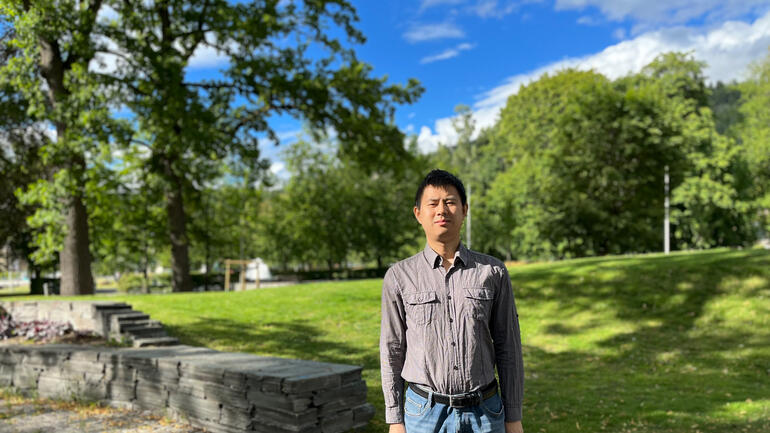Chaoqun Cheng at the Faculty of Technology, Natural Sciences and Maritime Sciences will defend his dissertation in the program Applied Micro- and Nanosystems.
The title of the dissertation is: "Visible light responsive titanium-oxides for enhanced photoelectrochemical water splitting application".
Summary
New titanium-oxides nanocomposites promising for making green hydrogen from water
Abundant water, composed of chemical hydrogen and oxygen elements, is existing as a liquid on the surface of Earth. Solar-powered breakdown of water molecules is one of the renewable ways to make green hydrogen for electricity, heat, and power.
A new class of visible light responsive titanium-oxides nanocomposites has been developed by Mr. Chaoqun Cheng at the University of South-Eastern Norway. The novel nanocomposites exhibit distinctive and promising properties to capture solar light energy for enhanced water splitting reactions.
In the work, the titanium-oxides nanocomposites have been designed and studied through theoretical and experimental methods. A uniquely resonant visible light absorption is exhibited on the nanocomposites, associated with a strong electric field enhancement effect.
Efficient transfer of light energy to charge carriers and accelerated charge separation and migration lead to the achievement of significant energy conversion efficiency.
The findings also suggest that a proper level of oxygen vacancies in metal-oxides like titanium-oxides nanocomposites may generate an abundance of free charge states near the Fermi level and support surface plasmon resonance excited under specific visible light irradiation.
The titanium-oxides nanocomposites with gradient distribution of oxygen atoms represent a conceptually different approach to enable the specific light capture and promote the conversion of solar to chemical energy for water splitting application and sustainable hydrogen production.

